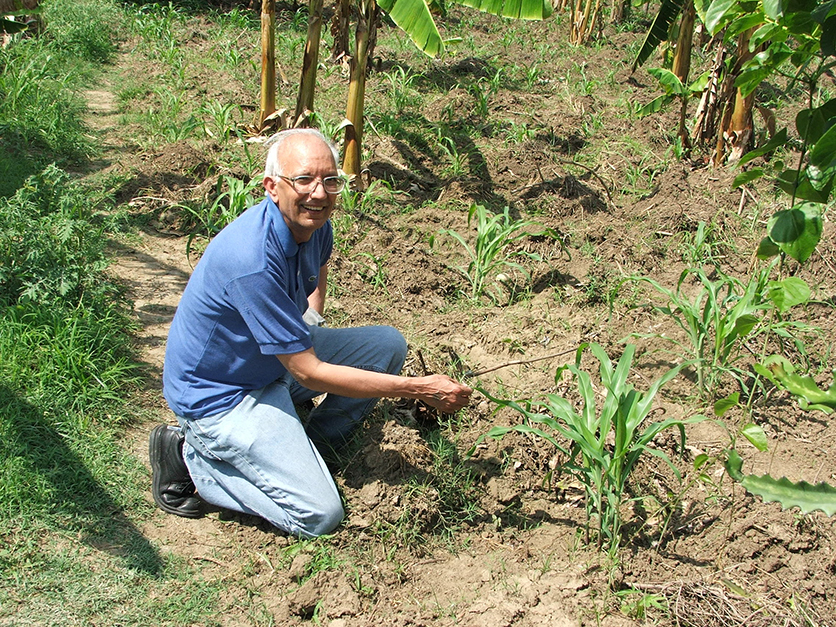
By Hannah Pagel
Soil scientist Dr. Rattan Lal has been selected as this year’s World Food Prize Laureate and will receive a $250,000 award for his work in promoting soils for sustainable development.
Lal is known for translating his research findings to help bridge the divide between governmental institutions and farmers and communities, especially as it relates to a soil-based approach to increasing food production while also considering conservation and climate change mitigation.
Lal grew up as a refugee living on a small subsistence farm in India. His passion for education and his determination to learn helped him begin his research career at the International Institute of Tropical Agriculture in Nigeria, where he developed soil health restoration projects across Asia, Africa and Latin America.
He focused on techniques such as no-till, cover cropping, mulching and agroforestry and found these techniques protected the soil from elements, conserved water and returned nutrients, carbon and organic matter to the soil. The agricultural practices Lal cultivated are now at the heart of efforts to improve agriculture systems in the tropics and globally.
In 1987, he returned to his alma mater, The Ohio State University, where his research showed how atmospheric carbon can be sequestered in soils, transforming the way the world saw soils.
In 2007, he was among those recognized with a Nobel Peace Prize Certificate for his contributions to the Intergovernmental Panel on Climate Change.
Lal now serves as a professor of soil science and founding director of the Carbon Management and Sequestration Center at Ohio State.
“Achieving hunger-free humanity, soil degradation neutrality, negative emission farming and pollutant-free water are among principal challenges which can never be ignored … Sustainable management of soil and agriculture is also essential to keeping global temperatures within the safe range and restoring the environment,” he said.
Lal is also one of the authors of a report rebutting a recent World Resource Institute blog post that questioned the potential for farmland to sequester carbon on a large scale. Read the rebuttal here.


